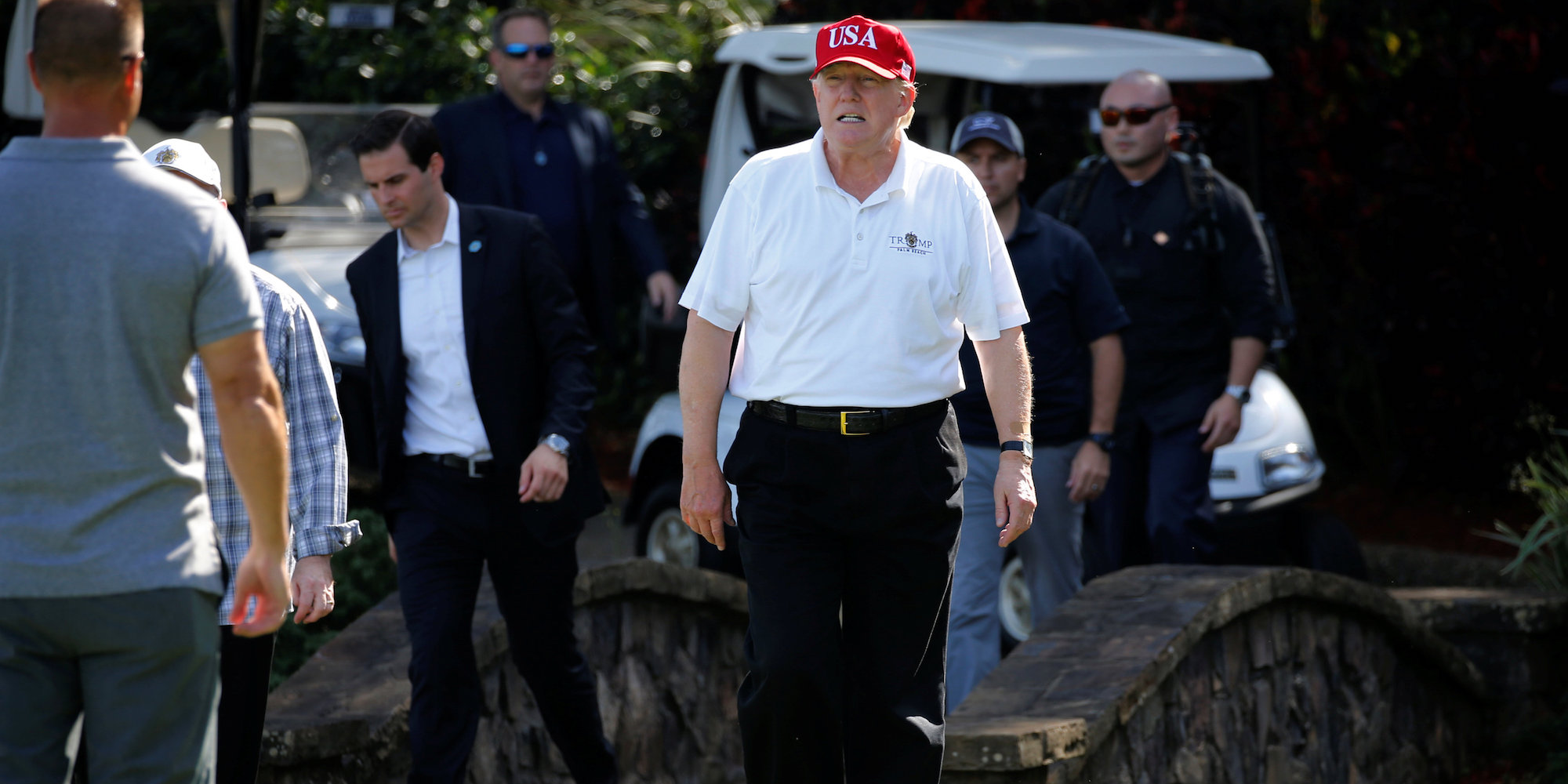- President Donald Trump did not participate in any community service or volunteer work on Martin Luther King Jr. Day.
- On Friday, before leaving for his Florida golf club, he urged the public to observe the day “with acts of civic work and community service in honor of Dr. King’s extraordinary life.”
- Trump’s decision to refrain from community service marks a departure from tradition observed by his recent predecessors.
Before leaving the White House for Florida on Friday, President Donald Trump encouraged the public to observe Monday, Martin Luther King Jr. Day, “with acts of civic work and community service in honor of Dr. King’s extraordinary life” and “his great legacy.”
But Trump apparently did not partake in any such service.
Instead, he spent Monday on the golf course at the swanky Trump International Golf Club in Palm Beach, Florida.
The move was a departure from his recent predecessors, all of whom did some form of community service on the day during their presidencies and sometimes after.
While President Barack Obama was in office, he and his family paid tribute to the civil-rights legend with some form of volunteer work, whether visiting a soup kitchen or helping paint a mural at a shelter.
President George W. Bush attended several memorials and services honoring King. He also invited African-American clergy members to the White House.
President Bill Clinton participated in volunteering activities. He also signed legislation commemorating the holiday and King's contributions to American progress.
Before leaving the White House on Friday, Trump signed a proclamation recognizing Monday as the national holiday in honor of King.
He also said, in his weekly address released Monday, that "Dr. King's dream is our dream, it is the American dream, it's the promise stitched into the fabric of our nation, etched into the hearts of our people and written into the soul of humankind."
"It is the dream of a world where people are judged by who they are, not how they look or where they are from," he added.
Trump's day out of the spotlight came on the heels of revelations that he asked, during a bipartisan White House meeting about the future of the Deferred Action for Childhood Arrivals program, why the US should accept people from "shithole countries" like Haiti, El Salvador, and some African nations.
He subsequently wondered, according to The Washington Post, why the US couldn't take in more people from countries like Norway, whose prime minister he'd met with the day before.
Democratic Rep. John Lewis, who marched for civil rights alongside King in Selma, Alabama, in 1965, denounced Trump as a "racist" in response.
"It's unreal," Lewis said during an interview on ABC's "This Week."
"It makes me sad. It makes me cry," Lewis said. "As a nation and as a people, we've come so far. We've made so much progress. And I think this man, this president, is taking us back to another place."
Trump's reported comments drew immediate and intense backlash from world leaders as well, particularly those representing nations Trump was said to have singled out with the profanity.
The White House did not deny that Trump made the comment, but Trump later said the comments quoted by The Post "weren't made."
Top Republicans and Trump supporters also repeatedly dodged questions about whether Trump used the word "shithole" to describe Haiti and African countries while appearing on several Sunday morning shows last weekend.
It's not the first time Trump has drawn scrutiny for remarks involving race.
He attracted widespread condemnation last summer when he said, in response to the deadly white nationalist riots in Charlottesville, Virginia, that "many sides" were to blame when a self-proclaimed white supremacist drove his car through a crowd of counterprotesters, killing one.

